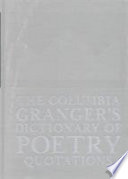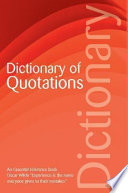 | David Watson Rannie - 1926 - 424 pages
...turn, expressed by a little group of noteworthy epithets : All breathing human passion far above, And leaves a heart high-sorrowful and cloyed, A burning forehead and a parching tongue. Multiplied epithets, threefold, fourfold, or more, are common, eg : She took an airy range, And then... | |
 | John Dover Wilson - 1927 - 310 pages
...and still to be enjoyed, For ever panting, and for ever young; All breathing human passion far above, That leaves a heart high-sorrowful and cloyed, A burning forehead, and a parching tongue. Who are these coming to the sacrifice? To what green altar, O mysterious priest, Lead'st thou that... | |
 | 1909 - 1108 pages
...and still to be enjoyed, Forever panting and forever young ; All breathing human passion far above. That leaves a heart high-sorrowful and cloyed. A burning forehead, and a parching tongue. Who are these coming to the sacrifice ? To what green altar, О mysterious priest, Lead'st thou that... | |
 | Mark Van Doren - 1928 - 1390 pages
...leaves, nor And, happy mclodi For ever \l L_ piping ENGLISH 1143 All breathing human passion far above, That leaves a heart high-sorrowful and cloyed, A burning forehead, and a parching tongue. Who are these coming to the sacrifice? To what green altar, O mysterious priest, Lead's! thou that... | |
 | 1912 - 164 pages
...turn, expressed by a little group of noteworthy epithets : All breathing human passion far above, And leaves a heart high-sorrowful and cloyed, A burning forehead and a parching tongue. Multiplied epithets, threefold, fourfold, or more, are common, eg : She took an airy range, And then... | |
 | John Barnard - 1987 - 192 pages
...time, they will be 'For ever warm and still to be enjoyed', above 'breathing human passion' which . . . leaves a heart high-sorrowful and cloyed, A burning forehead, and a parching tongue. (lines 25-30) In order to identify the urn's particular power for its spectator, Keats here (as throughout)... | |
 | Edith P. Hazen - 1992 - 1172 pages
...and still to be enjoyed. For ever panting, and for ever young; All breathing human passion far above, , sage and holy. Hail divinest Melancholy, Whose saintly visage is too bright To hit the (1. 25—30) 40 When old age shall this generation waste, Thou shall remain, in midst of other woe... | |
 | Austin Sarat, Thomas R. Kearns - 1996 - 354 pages
...reveals at the end of the third stanza when he makes reference to his own experience of the human passion "That leaves a heart high-sorrowful and cloyed, / A burning forehead, and a parching tongue." If the first response is to dominate the work of art by a professorial inquisition, the second is to... | |
 | Connie Robertson - 1998 - 686 pages
...and still to be enjoyed, For ever panting, and for ever young; All breathing human passion far above, ׁ I ꏨ "; 1998 Wordsworth"' Robertson Connie" Connie Robertson( 5492 'Ode on a Grecian Urn' O Attic shape! Fair attitude! 5493 'Ode on a Grecian Urn' 'Beauty is truth,... | |
 | Andrew Motion - 1999 - 702 pages
...and still to be enjoyed, For ever panting, and for ever young All breathing human passion far above, That leaves a heart high-sorrowful and cloyed, A burning forehead, and a parching tongue. Developing these thoughts, Keats has led himself away from the urn itself. In the fourth stanza he... | |
| |